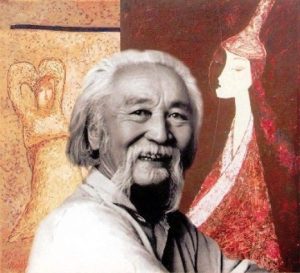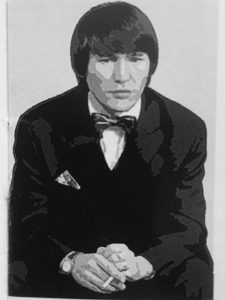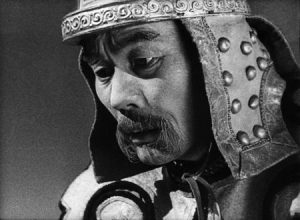It’s been a month since the new album Gerege was exposed to the public. Many of our HU fans felt and sensed the stories of the recent songs, despite missing the lyrics in English, it boggles the mind. To some extent we are in the same boat, I can’t pick up most of the words, yet I never felt deprived. I echo the thoughts of those who don’t care about the lyrics as long as the emotions and vibes of the songs speak to them. Knowing lyrics amplifies our perceptions, provided they match well with their music. Dashka and Co. just had done it.
The Wolf Totem is a good example, the perceptions of the fans were slightly different, such as a war chant, haka challenge, or some tribal feel, etc.. even one could describe it as a roar “bring it on” comes from a lion’s den; in the end, all interpretations are spot on.
There are a number of folk bands with similar traits, but none could capture a global audience as the HU, hence it naturally begs the question, How? … in the world of music that is becoming more derivative, redundant, and commercial; the band develops something new brilliantly blending traditional folk with metal, they call it Hunnu rock, characterized by powerful primal and unique sound with throat singing, horsehead fiddle solos, tovshuur/guitar enhanced with rock tunes, and emphatic percussion beats, that added whole another element and dimensions to the rock and metal genre; but above all, it is their passion. Their passion roots deep in Mongolia’s heritage and tradition resonates flawlessly with their music, which transcends cultural boundaries and language barriers.
Here’s what the HU say about it:
“We have rich cultural heritage and the legacy left by our ancestors,” said Jaya “and we do our best to most vividly incorporate these elements in our music, such as our producer Dashka, who wrote the next song with a prominent and well-known poet Baljir Dogmid*… Let me reiterate, as you can see our brother (Dashka) writes music with super famous people** only” the audience laughs “a song we deliver the next tears at our heartstrings, please listen with heart and soul to the song, here it is … Mother Swan” (a.k.a. “The Legend of Mother Swan”)

Speaking of The Legend of Mother Swan, mother nature is a common theme of songs, epics, and blessings of nomads and its footprints can be found in Yuve Yuve Yu and Shireg Shireg as well. The song is about a swan that stays with its not fully grown cygnets instead of migrating with its flock when winter approaches, ultimately sacrificing herself.
For centuries, nomads have driven their livestock across the harsh endless plain steppe, and this way of living crafted traditions and customs to live in total harmony with mother nature, passing these on to the next generations. One of them is proverbial sayings, such as elders saying “Do not cast your shadow over a bird’s nest, otherwise, mama bird would reject her eggs and chicks”. As kids, we take it for granted and follow suit. Now, we are all grown-ups and know it’s a myth, yet we still keep the belief and pass it on to our next generation. In the end, it teaches us, nomads, how life is precious and fragile.
Every native culture offers the same philosophy, and basic guidance despite their differences, perhaps the HU is poised to awaken the ancestral wisdom that is long forgotten through their music for all and I quote:
“Why do the valuable ethics of ancestors become worthless? How strange, how strange,
Why priceless wisdom of elders turning to ashes? How strange, how strange”
* Baljir Dogmid, national novelist and poet, 1945 – present,
** As super famous people, Jaya was referring to Tsogt Khun Taij, a nobleman, 1581–1637; whose poem was carved on Duut Rock in 1624, which was adapted to “The Same” and,
** Byambyn Rinchen, scholar, one of the founders of modern Mongolian literature, 1905-1977; whose poetry was adapted to the “Wolf Totem”.


